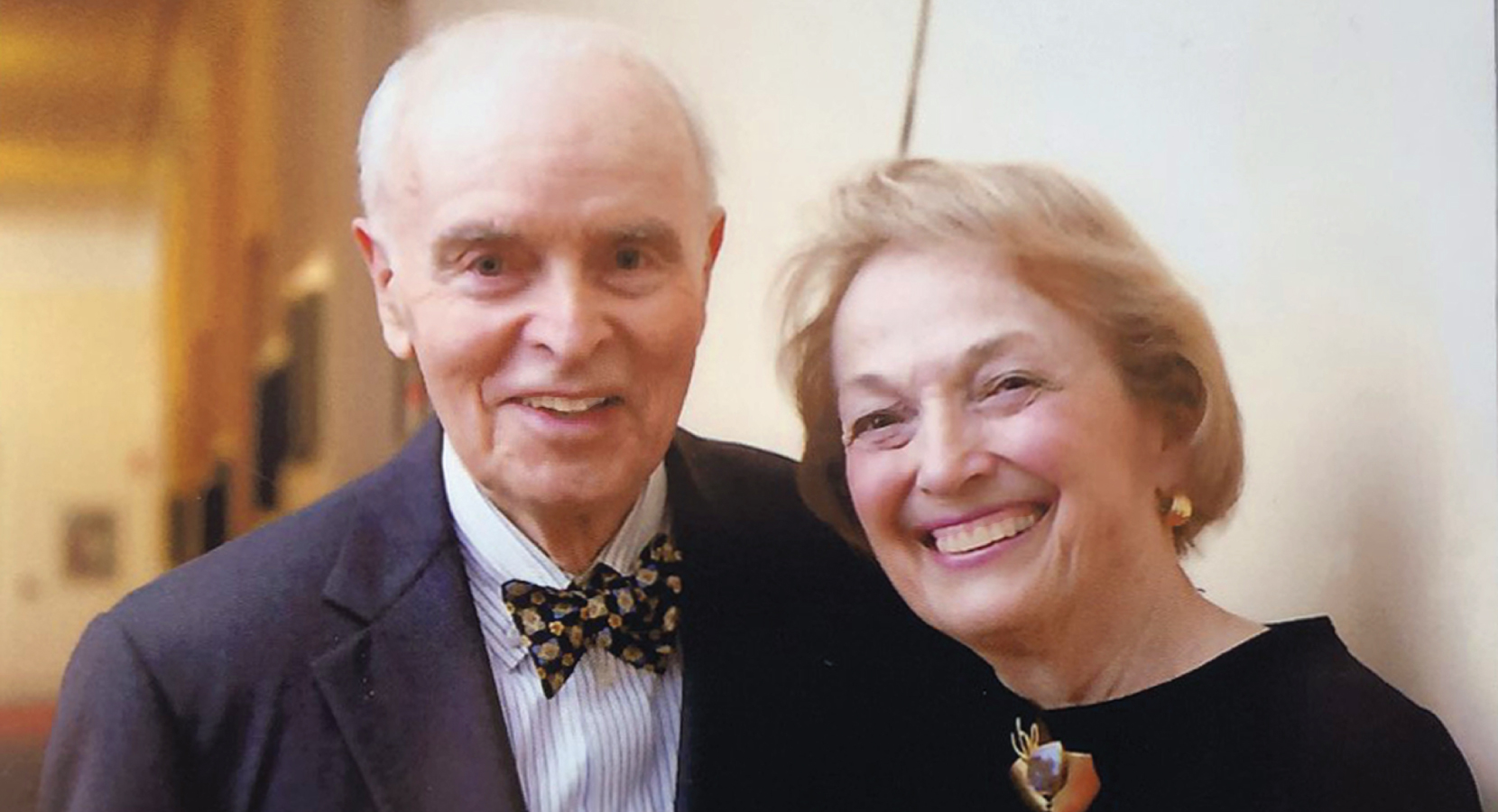
Cogan and Cornille give in memory of friendship and love
“Jack had a remarkable career and was involved in many civic and charitable organizations. If this [gift] means more people could be helped the way Jack was, that would be truly wonderful.”
—MARY CORNILLE
With a connection spanning seven decades, the late John “Jack” Cogan and the late John Mannick, MD, proved some friendships are timeless. They met as young men at Harvard in 1945, after Cogan served in World War II, and formed a bond that would outlast long-distance moves, raising families, and building successful careers. Cogan became an esteemed lawyer and leader in the financial services industry. Mannick became a pioneering vascular surgeon who served as surgeon-in-chief at the Brigham.
“Jack and John were powerhouses in their lives,” says Mary Cornille, Cogan’s wife. “Jack had a remarkable career and was involved in many civic and charitable organizations. And John was a wonderful doctor, leader in his field, and dear friend. They inspired each other throughout their lives.”
When Mannick died in late 2019, Cogan was facing his own serious health challenges. Nonetheless, he was determined to endow a professorship to preserve his friend’s legacy. Though Cogan didn’t see it come to fruition, he ensured his wishes would be fulfilled through a $4 million bequest from his estate, which established the John Anthony Mannick, MD, Professorship of Surgery at Harvard Medical School. The incumbent will be a professor or associate professor focused on vascular or immunology-related surgery at the Brigham.
Cogan and Cornille received excellent medical care from their doctors at the Brigham for many years. And for Cornille, the Brigham holds special meaning. Toward the end of Cogan’s life, the therapeutic approaches of the Osher Center for Integrative Medicine helped improve his mobility, which was vital to him as an avid runner. To honor her husband’s memory and recognize those benefits, Cornille contributed $125,000 to the center to support patients’ well-being and advance therapies emphasizing the mind-body connection.
“Every day he could, Jack would run along the Charles River,” Cornille says. “In the end, he couldn’t run like he did before, but learning Tai Chi and receiving manipulative therapy at the Osher Center noticeably improved his movement and provided relief.”
Cornille hopes her gift will enable the center to increase medical education and awareness of integrative medicine. She says, “If this means more people could be helped the way Jack was, that would be truly wonderful.”